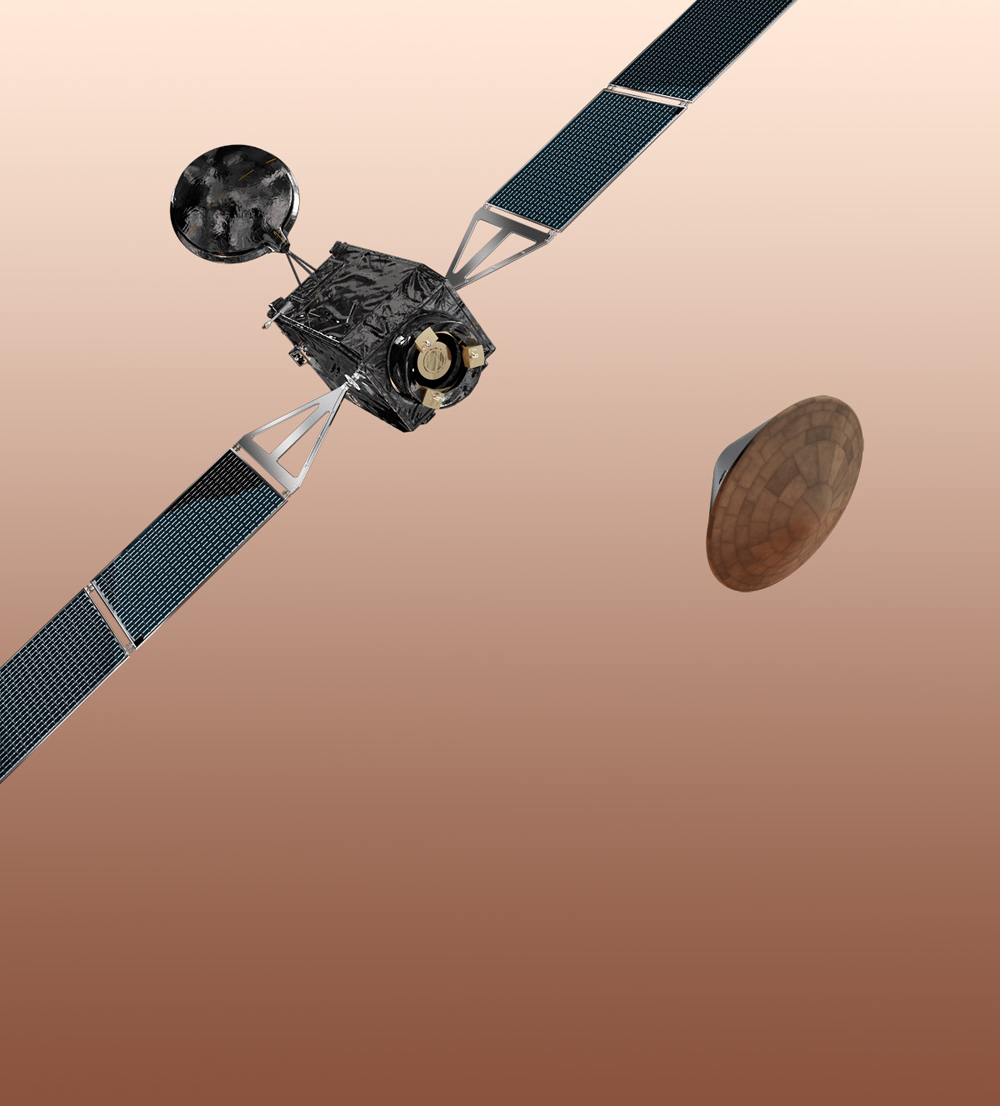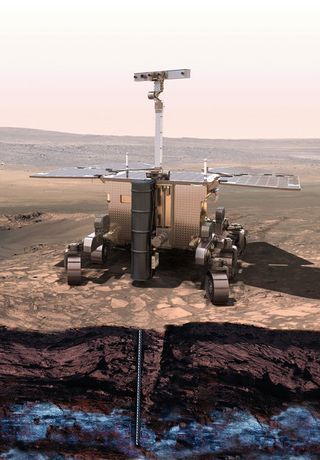Russia and Europe Team Up for Mars Missions

Russia and the European Space Agency have officially teamed up to send a series of spacecraft to search for signs of life on Mars.
European space officials and Russia's Federal Space Agency (Roscosmos) signed a deal Thursday (March 14) to launch a Mars orbiter mission in 2016 and a rover in 2018 as part of what is now a joint ExoMars program.
The Mars exploration agreement outlines the two agencies' responsibilities for the upcoming unmanned missions. In 2016, ESA will provide the Trace Gas Orbiter to study the atmosphere of Mars to measure its chemical composition, as well as an entry, descent and landing demonstrator module.
For the 2018 mission, ESA will provide the carrier and the ExoMars rover, which will search for signs that life on Mars existed in the past or present, collecting samples from as deep as 6.5 feet (2 meters) beneath the surface of the Red Planet.
"It will be the first Mars rover able to drill to depths of 2 m, collecting samples that have been shielded from the harsh conditions of the surface, where radiation and oxidants can destroy organic materials," ESA officials said in a statement.

Roscosmos, meanwhile, will supply the rockets to launch both Mars missions, as well as the 2018 descent module and surface platform. Both space agencies will provide scientific instruments and will work together on the scientific goals of the missions, according to ESA officials.
ESA director-general Jean-Jacques Dordain called Thursday's agreement a "momentous occasion" for the ExoMars program after meeting with the head of Roscosmos, Vladimir Popovkin, at the ESA headquarters in Paris. Dordain said in a statement that the agreement "will demonstrate the competitiveness of European industry, be important for preparing a solid participation of ESA in future international exploration missions and address the key question of whether life ever arose on Mars."
Get the Space.com Newsletter
Breaking space news, the latest updates on rocket launches, skywatching events and more!
NASA pulled out of the ExoMars program last year due to budget cuts in its planetary science program, but ESA officials said the U.S. space agency will still contribute some communications and engineering support for the new Mars missions.
Follow SPACE.com on Twitter @Spacedotcom. We're also on Facebook and Google+. Original story on SPACE.com.

Join our Space Forums to keep talking space on the latest missions, night sky and more! And if you have a news tip, correction or comment, let us know at: community@space.com.

Space.com is the premier source of space exploration, innovation and astronomy news, chronicling (and celebrating) humanity's ongoing expansion across the final frontier. Originally founded in 1999, Space.com is, and always has been, the passion of writers and editors who are space fans and also trained journalists. Our current news team consists of Editor-in-Chief Tariq Malik; Editor Hanneke Weitering, Senior Space Writer Mike Wall; Senior Writer Meghan Bartels; Senior Writer Chelsea Gohd, Senior Writer Tereza Pultarova and Staff Writer Alexander Cox, focusing on e-commerce. Senior Producer Steve Spaleta oversees our space videos, with Diana Whitcroft as our Social Media Editor.